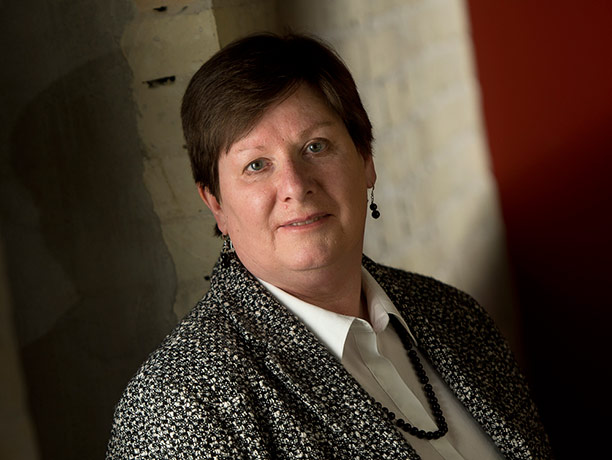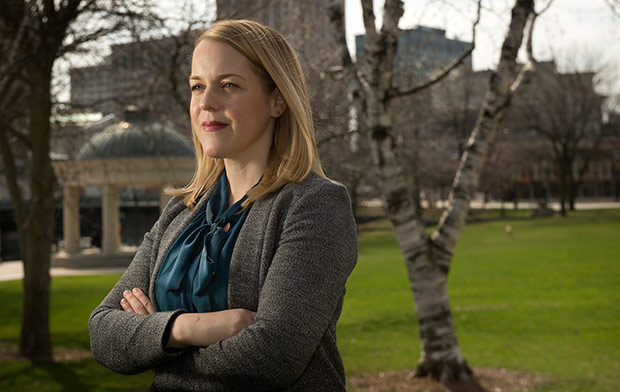Group wants pro bono attorneys for piecemeal divorce cases
By: Erika Strebel, [email protected]//May 4, 2016//
Group wants pro bono attorneys for piecemeal divorce cases
By: Erika Strebel, [email protected]//May 4, 2016//

Before a recent rule change, chances were slim that the parties in a divorce case could find lawyers to represent them pro bono.
Most lawyers were unwilling to take up such cases because they feared a judge would force them to see the often lengthy proceedings through to the end, said Milwaukee County Circuit Judge Mike Dwyer. Wanting to cut down on the number of litigants who are choosing to represent themselves in court, Dwyer joined a committee charged with identifying some of the reasons why family law attorneys were not using a 2007 rule that lets attorneys provide limited-scope representation.
More commonly referred to as unbundled services, this sort of representation gives lawyers the ability to handle family law cases in a piecemeal fashion. Lawyers who participate can take up certain parts of a case pro bono while leaving others to separate legal professionals.
Dwyer and his fellow committee members are hoping a new pilot program they have proposed for Milwaukee will encourage greater use of unbundled services. The program would pair people who are going through a divorce with a different volunteer lawyer at each stage of their case.
“What we’re doing is breaking (the case) into segments, recognizing that it’s a labor-intensive activity and difficult for many lawyers to do,” said Kathy Charlton, a lawyer who practices family law out of Hawks Quindel’s office in Milwaukee. “We’re hoping if we break it into manageable sections more people would volunteer.”
Attorneys who are being paid by the parties in a divorce generally see the case through from start to finish. The task puts a heavy burden on a person’s time, Charlton said, so when it comes to doing the same work for free, many lawyers are understandably reluctant to go all in.
After Wisconsin’s rule governing limited-scope representation underwent some clarification in 2015, Dwyer helped organize a committee charged with finding ways to make it easier for lawyers to work pro bono on divorce cases. The primary goal was to slow the rise in people choosing to represent themselves in court.
A lack of money is not the only reason litigants now forgo professional legal services. Many people are seeking to have an amiable divorce and think that lawyers will only make things acrimonious.
Whatever the reasons, it’s now estimated that more than 70 percent of litigants in family law cases decide to forgo enlisting professional legal services.
“Both the rule and the pilot project came out of a need for improving access to legal assistance, particularly in family law cases,” Dwyer said.
Besides Charlton, the committee includes Lindsey Burghardt of Gagne McChrystal De Lorenzo Burghardt’s Milwaukee office, and Maggie Niebler-Brown, who helps organize Legal Action of Wisconsin’s volunteer lawyer programs.

Niebler worked with Legal Action to find good candidates for pro bono legal assistance. Her search was primarily aimed at digging up straightforward cases involving couples without children. Also appealing were cases in which both parties had agreed that it would be best that their marriage end.
The work yielded two possible clients, one of whom was referred to Charlton and the other to Burghardt. Charlton’s case eventually went forward and wrapped up with a hearing in April. Burghardt’s client, on the other hand, never reached out for assistance.
Charlton, in taking on the pro bono work, ended up representing her client only to the end of the pretrial conference. In deciding how to best divide up divorce cases to prevent volunteer lawyers from having to take on everything, Charlton and her fellow committee members had decided pretrial conferences would mark a good breaking point.
The majority of divorces cases stop there, Charlton said. Rather than go to trial, most end in a settlement.
Charlton said the new limited-scope rule provides a structure to those who want to practice family law pro bono. Recognizing the benefits of the piecemeal approach, Charlton and her fellow committee members are now in search of more lawyers who are willing to donate their time.
“The rule gives roadmaps of how to do it and lets you know what the limits are,” she said.
All this is not to say, though, that the piecemeal approach is without drawbacks.
For one, limited representation may put litigants at a disadvantage if they cannot find volunteer lawyers who are willing to take up a case where previous ones had left off. That’s especially true if the opposing party has managed to retain an attorney for the entire proceeding.
“That could lead to some diminished leverage because the other lawyer knows the limited-scope lawyer won’t be there afterward,” Charlton said. Follow @erikastrebel
Legal News
- Wisconsin joins Feds, dozens of states to hold airlines accountable for bad behavior
- Trump ahead of Biden in new Marquette poll
- Bankruptcy court approves Milwaukee Marriott Downtown ‘business as usual’ motion
- New Crime Gun Intelligence Center to launch in Chicago
- Arrest warrant proposed for Minocqua Brewing owner who filed Lawsuit against Town of Minocqua
- Wisconsin Supreme Court justices question how much power Legislature should have
- Reinhart named the 2024 Wisconsin law firm of the year by benchmark litigation
- Milwaukee’s Common Council now has the most African Americans, women and openly LGBTQ members ever
- Office of School Safety Provides Behavioral and Threat Assessment Management Training Ahead of 25th Anniversary of Columbine Shooting
- Wisconsin Supreme Court to hear arguments in Democratic governor’s suit against GOP-led Legislature
- Lawsuit asks Wisconsin Supreme Court to strike down governor’s 400-year veto
- Wisconsin man pleads not guilty to neglect in disappearance of boy
WLJ People
- Power 30 Personal Injury Attorneys – Russell Nicolet
- Power 30 Personal Injury Attorneys – Benjamin Nicolet
- Power 30 Personal Injury Attorneys – Dustin T. Woehl
- Power 30 Personal Injury Attorneys – Katherine Metzger
- Power 30 Personal Injury Attorneys – Joseph Ryan
- Power 30 Personal Injury Attorneys – James M. Ryan
- Power 30 Personal Injury Attorneys – Dana Wachs
- Power 30 Personal Injury Attorneys – Mark L. Thomsen
- Power 30 Personal Injury Attorneys – Matthew Lein
- Power 30 Personal Injury Attorneys – Jeffrey A. Pitman
- Power 30 Personal Injury Attorneys – William Pemberton
- Power 30 Personal Injury Attorneys – Howard S. Sicula











